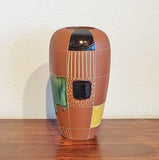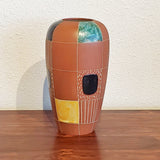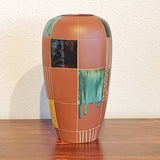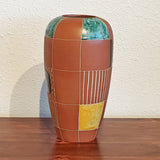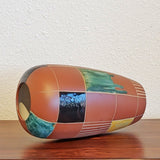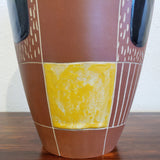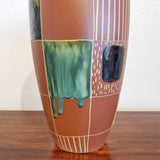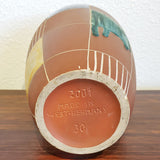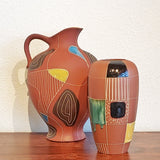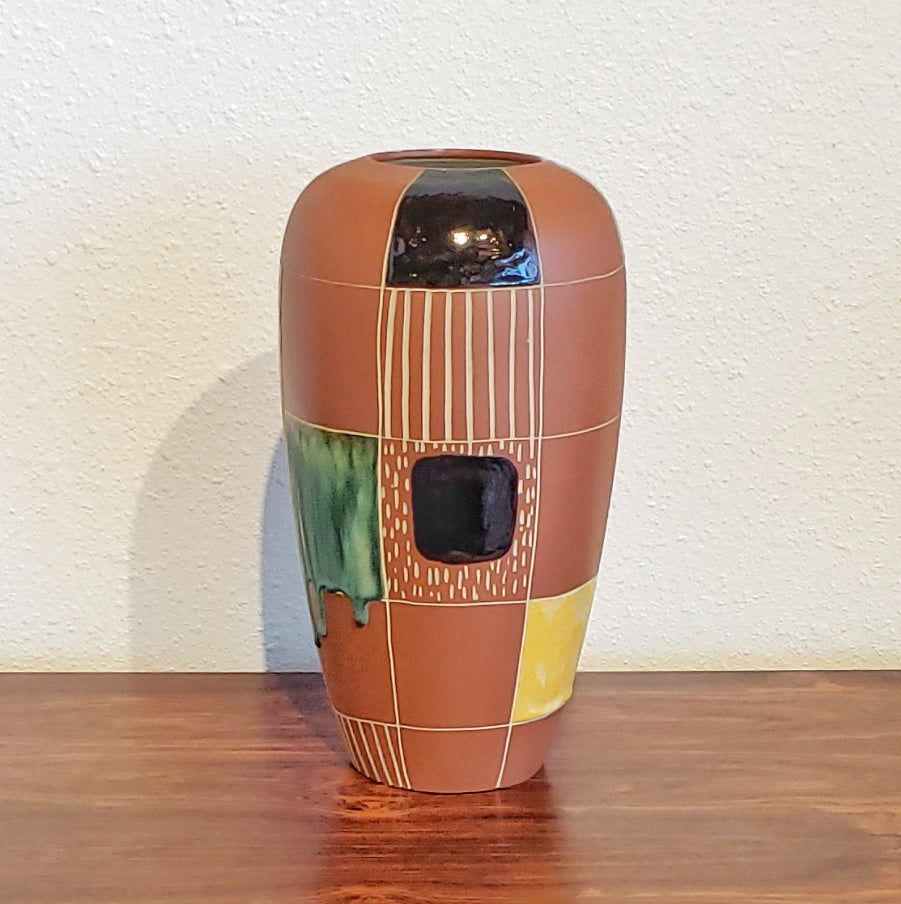
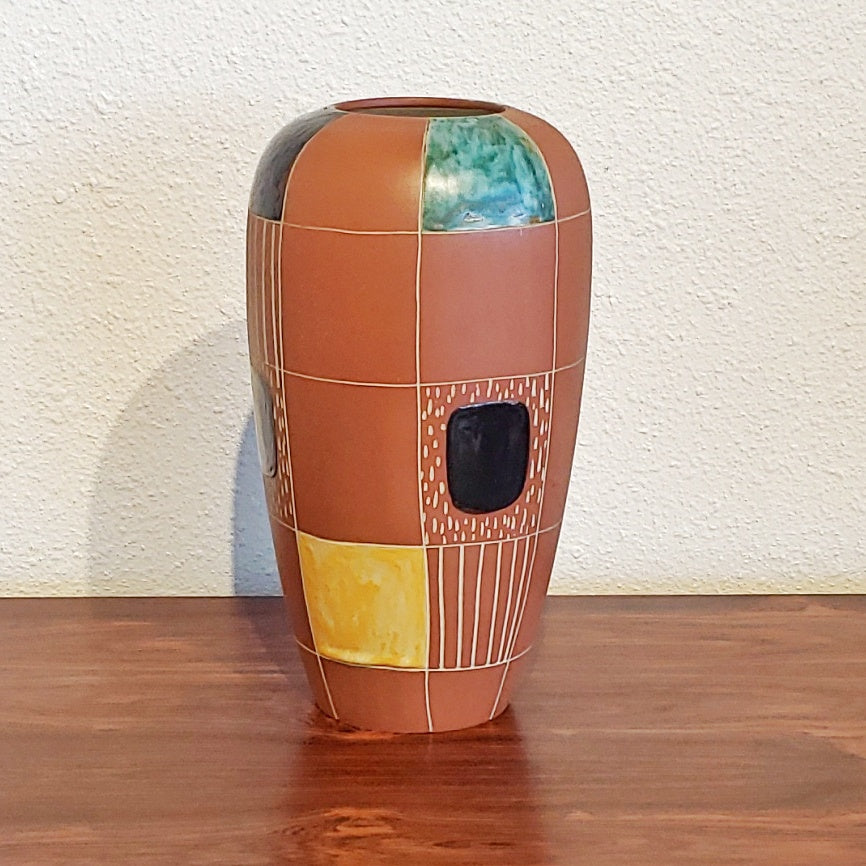
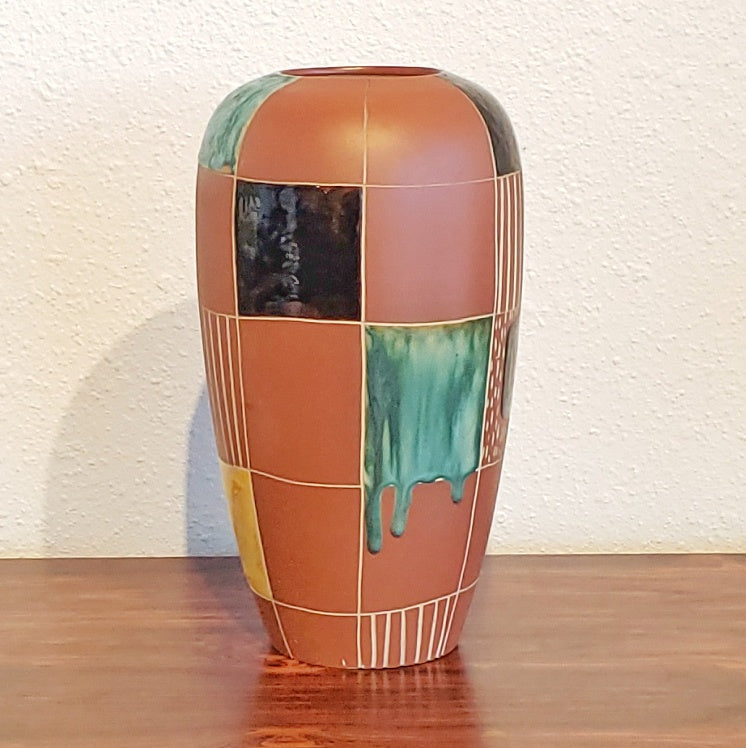
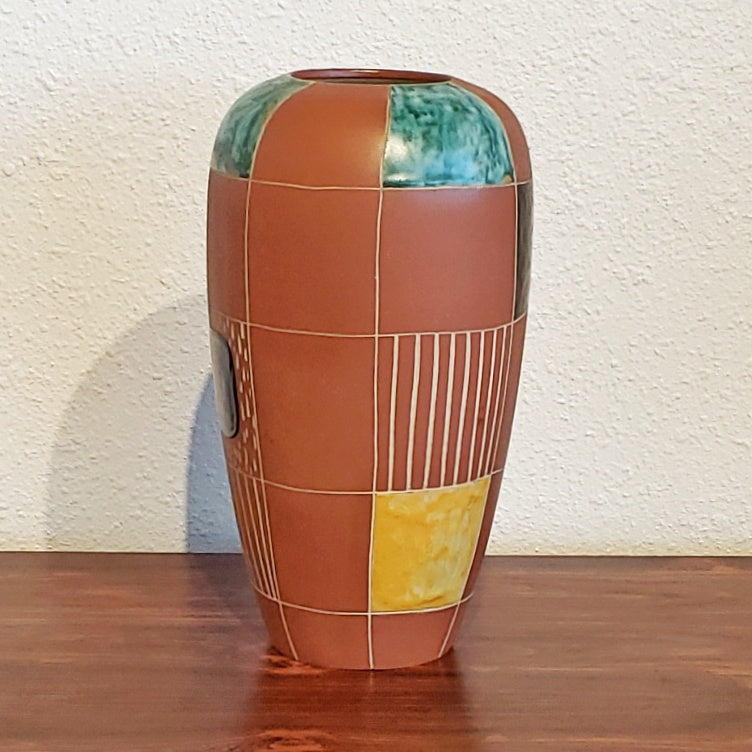
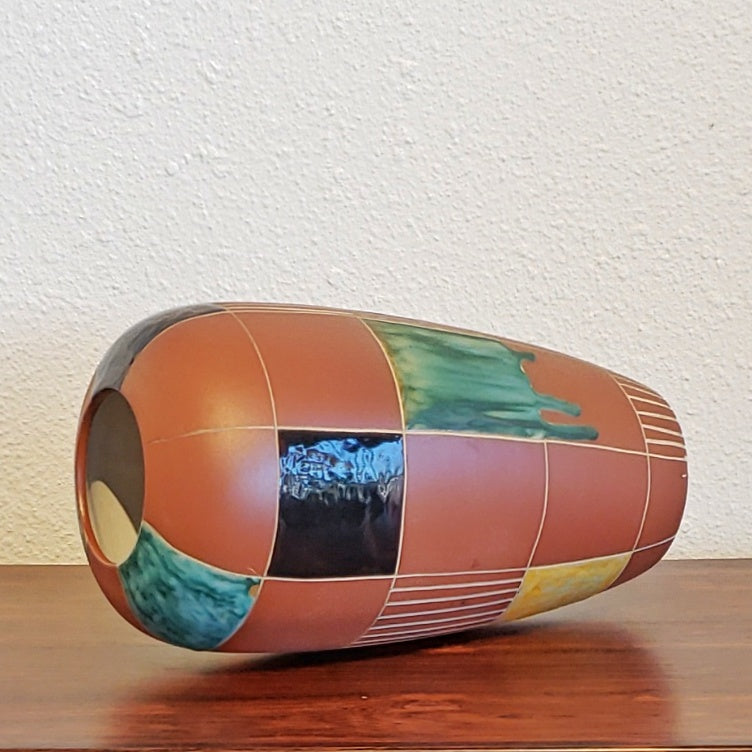
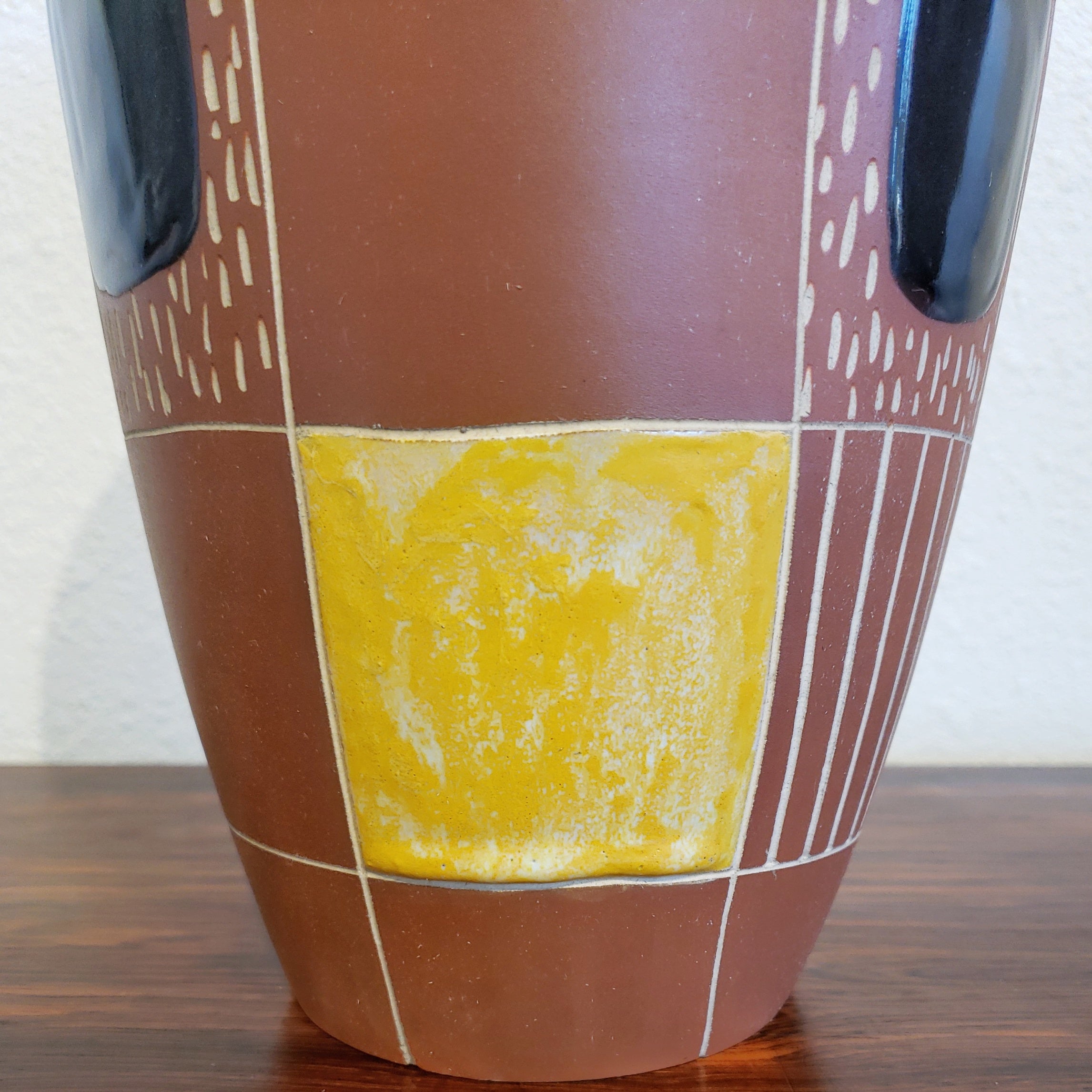
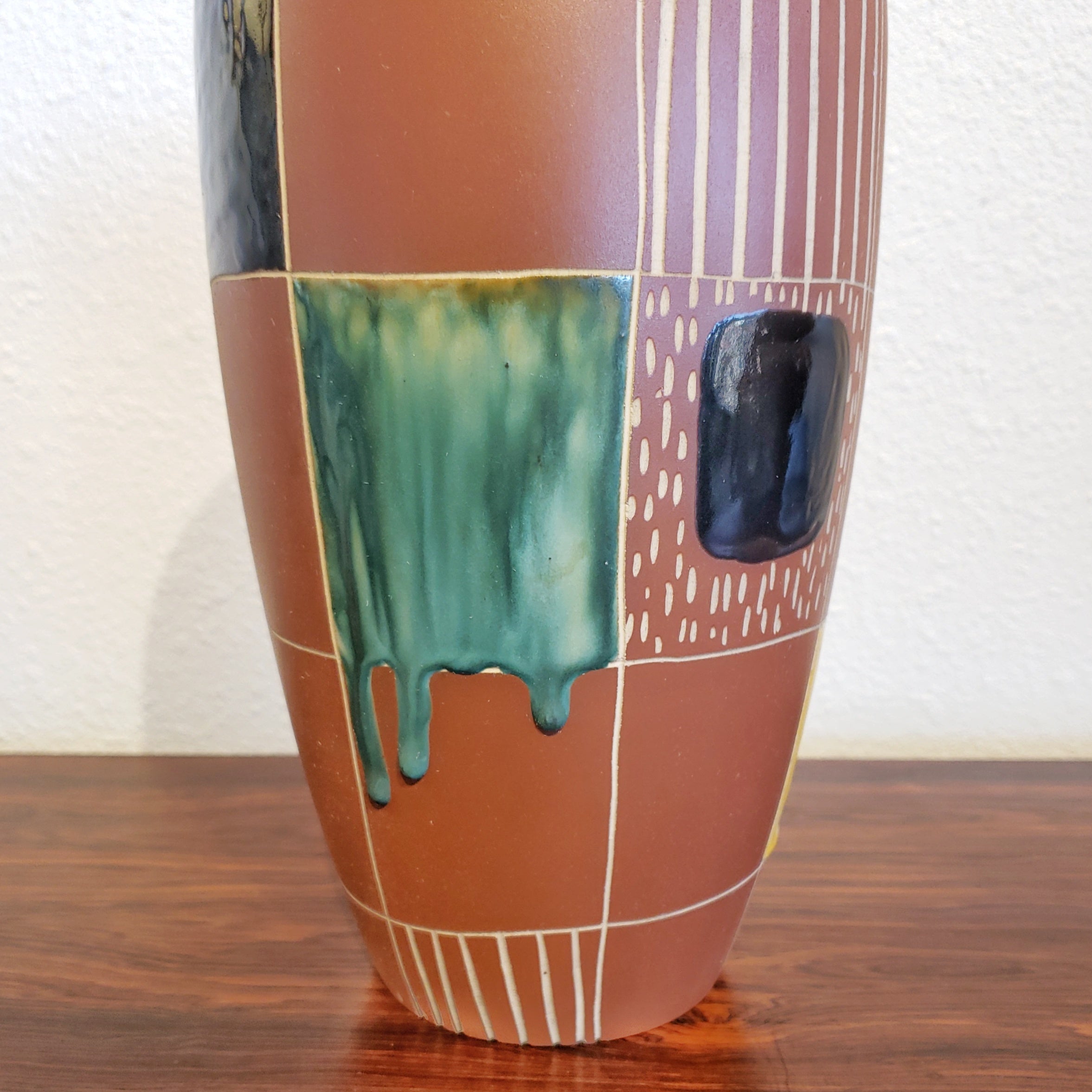
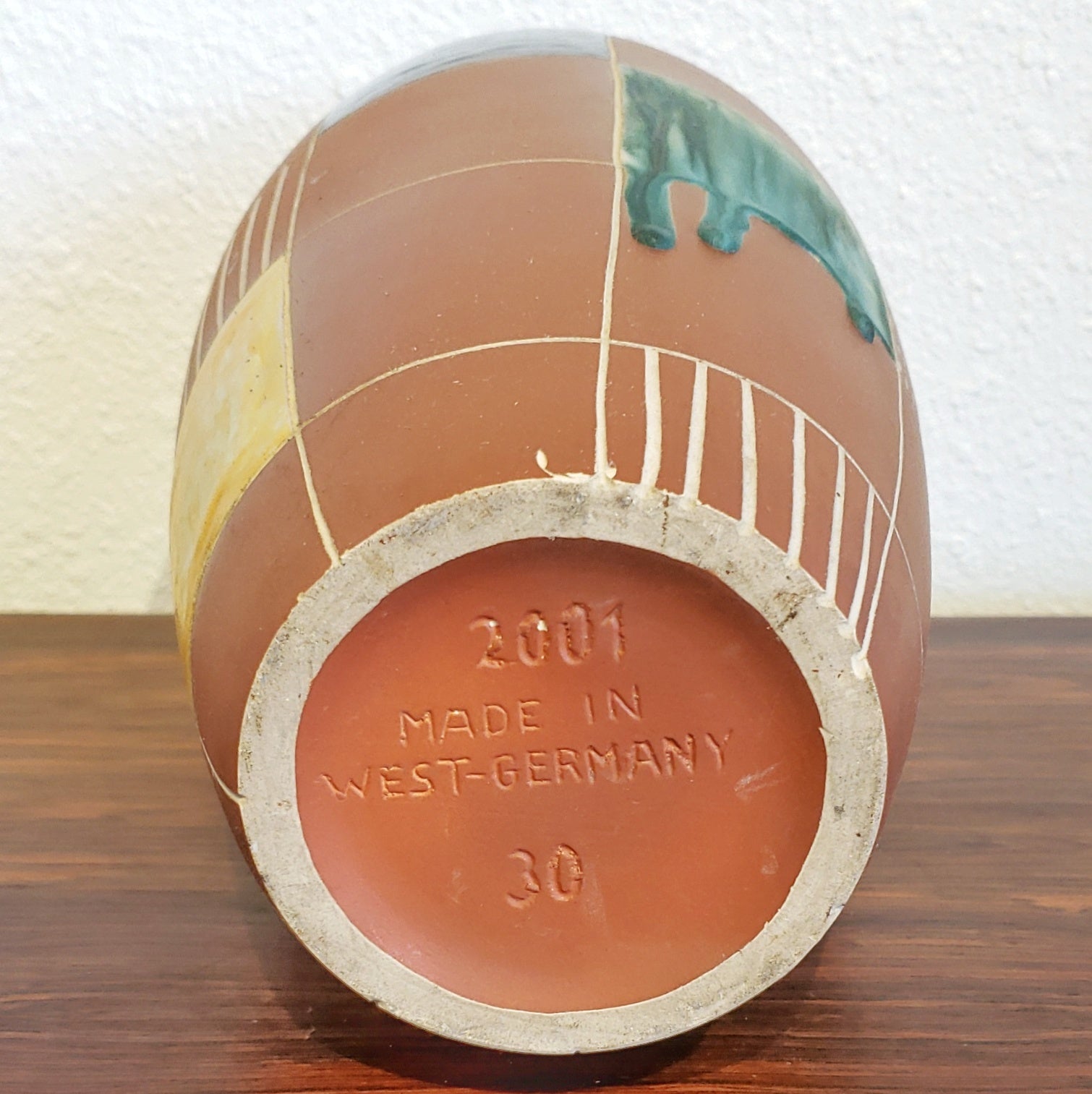
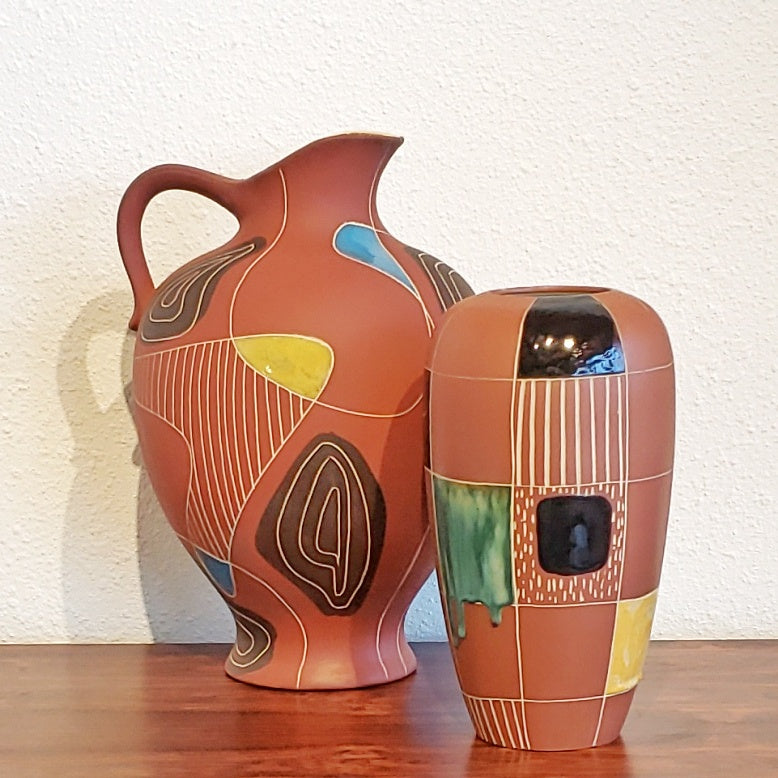
BODO MANS ‘KUBA’ VASE 2001/30 FOR MAREI KERAMIK (RARE)
CONTACT US HERE ABOUT THIS ITEM.
A beautiful and rare example of an early MAREI KERAMIK vase in the 'Kuba' décor, designed by Bodo Mans in 1958.
BODO MANS was born in 1935. From 1949 to 1951 he apprenticed as a window dresser and a decorative painter. He next trained as a graphic designer in Cologne before taking up the study of ceramics at the technical school in Höhr-Grenzhausen (1954-1956). After brief employment as a ceramic painter with Keto Keramik, he took a temporary job at the Madoura company in Vallauris, a small community in southeastern France bordering the resort town of Antibes. The Madoura workshop is famously where Picasso realized his ceramic designs while living in Vallauris (1948-1955).
Following his 1957 return to Germany and a short stint with Ruscha Keramik, Mans went to work as a designer for MAREI KERAMIK in Rheinbach, where he was employed through the end of 1958. Clear influence of his earlier work at Keto is seen in his work for MAREI. Some of his designs from the period were adopted by Bay Keramik of Ransbach-Baumbach, and in 1959 Mans began to freelance officially for the company, providing plans for both forms and décors. Well-known examples of the latter include 'Reims' (approx. 1960), 'Istanbul,' 'Ravenna,' and 'Saarburg' (all approx. 1961). Mans became a permanent designer for BAY in 1962. That same year, along with Liesel Spornhauer and others, he became a founding member of the ceramic group "Muffel." Its exhibitions brought his ceramic objects and murals to public attention; he won great acclaim for their color, playfulness, and formal technical design. The popularity of his early work for Bay anticipated that of German art pottery more generally. Mans officially retired from Bay in 1975. Since then he worked as a freelance industrial designer, painter, graphic artist, and journalist. He passed away in 2001.
MAREI KERAMIK was founded in 1948 by Jean Fuss and his son in the town of Rheinbach near Bonn in the German state of North Rhine-Westphalia when Fuss and then partner Josef Emons dissolved their terracotta business. (Emons established ES Keramik with his sons in the same year.) Fuss & Emons had been formed in 1921 when the two men left employment with Klein & Schardt, the predecessor of Ruscha Keramik. Its output consisted of flower pots, ornamental ceramics, and eventually drainage pipes. With the start of WWII, production came to a near standstill—with the exception of the inserts for so-called "Hindenburg lichter," an important source of wartime emergency lighting. The full program was resumed as conditions normalized after the war, but the two men chose to go in different directions. MAREI is a syllabic abbreviation of the first part of the company's legal name, MAjolikafabrik RhEInbach Jean Fuss & Sohn. Fuss's son tragically died in an accident in 1951.
The focus of MAREI's initial production program was flower pots and vases with simple surface designs. However in 1957, daughter Hildegard Fuss and her husband Wolfgang Bruchhausen joined the family business—the latter would soon assume management of the company. Soon thereafter they engaged the well-known designer Bodo Mans enrich the MAREI product line. When Mans left a year later he was succeeded for a short time by Walter Weiland. Weiland in turn moved on to Fohr Keramik where he rose to head of design.
It was once generally thought that MAREI had been a fairly small company and that their output peaked in the 1950s. However research has shown that it was something of a manufacturing powerhouse and that some of its best work was produced in later decades. Catalog discoveries have credited to MAREI many pieces previously attributed to Roth Keramik. (The work of historians has been confounded by MAREI's practice of reusing both form numbers and glaze names over the years.)
Design Year – 1958
Country of Origin – WEST GERMANY
Designer – BODO MANS (1935-2001)
Maker – MAREI KERAMIK
Attribution – MARKED
Materials – CERAMIC
Colors – TERRA COTTA, MULTICOLOR
Condition – VERY GOOD (no defects; may show slight traces of use)
Height (cm) – 30.0
Diameter (cm) – 6.0

